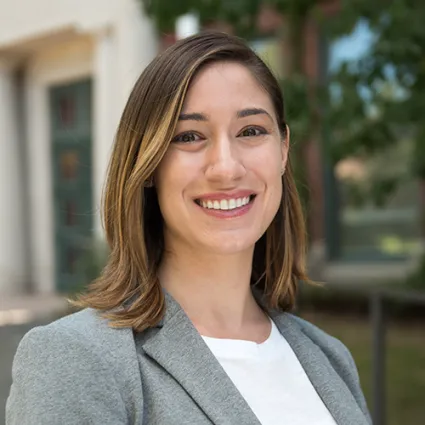Randi L. Garcia
Chair, Department of Statistical & Data Sciences; Associate Professor of Psychology and of Statistical & Data Sciences

Biography
Randi Garcia is interested in how status and power within people’s daily interactions work to reproduce larger social inequalities. Using quantitative methods, her research explores interpersonal interactions and relationships among people with different social group identities in various contexts. These contexts include sexual objectification among the newly acquainted, racial bias in dyadic and group interactions, and inequality in household labor.
Garcia’s undergraduate education at the University of California, Los Angeles, was in psychology and women’s studies, with a specialization in computing. Following, she earned a master’s degree in statistics and a doctorate in social psychology at the University of Connecticut. Her graduate worked focused on developing models for investigating group composition and diversity in groups and dyads. After graduate school, Garcia held a postdoctoral research associate position at Princeton University, where she investigated racial attitude disagreement in interracial and same-race friendships. She joined Smith in the fall of 2016 and teaches courses both in statistical and data sciences (SDS) and in psychology. Garcia is an Accredited Professional StatisticianTM.
Her current research in sexual objectification continues to explore the effects of being sexually objectified on state self-objectification and, in addition, how exposure to sexualized images of women of color influence cognitive processes of objectification. She is also currently interested in the factors that lead to daily inequalities in housework and child care.
Selected Publications
Racial attitude (dis)similarity and liking in same-race minority interactions.
Gender-typed behavior over time in children with lesbian, gay, and heterosexual parents.
Objectification in action: Self- and other-objectification in mixed-sex interpersonal interactions.
Moderation in the actor–partner interdependence model.
Using the actor–partner interdependence model to study the effects of group composition.
Office Hours
Spring 2026
Wednesdays 1:30–2:30 p.m.
Fridays 4:15–5:15 p.m. (in Bass 412)